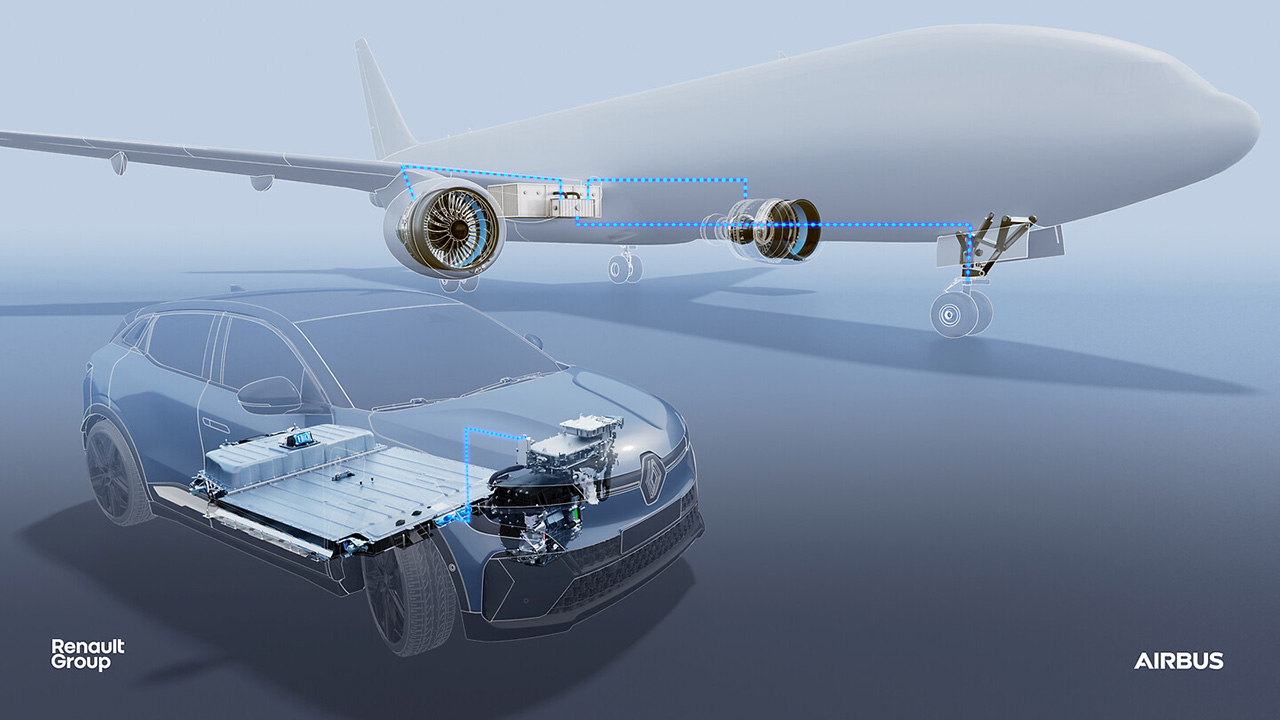By collaborating, Renault and Airbus hope to improve energy management and reduce weight in order to develop Airbus's hybrid aircraft.
The joint work will also study the full lifecycle of future batteries, from production to recyclability, in order to prepare the industrialisation of these future battery designs while assessing their carbon footprint across their entire lifecycle.
In the long term, the partnership will develop solid-state batteries - claimed to have double the energy density of current lithium ion cells - with a view to introducing this technology in both cars and aeroplanes around 2030.
Renault Group engineering executive Gilles Le Borgne said of the Airbus partnership: "At Renault Group, our 10 years of experience in the electric vehicle value chain gives us some of the strongest feedback from the field and expertise in the performance of battery management systems. Driven by the same ambition to innovate and reduce the carbon footprint, our engineering teams are exchanging with those of Airbus to converge transversal technologies that will enable both hybrid aircraft to be operated and the vehicles of tomorrow to be developed."
It's worth mentioning that, back in February 2022, the CEO of Airbus Guillaume Faury said that the aviation industry risks severe consequences if it doesn't solve the problem of its carbon footprint. In his opinion, hydrogen is the best solution.
Source: Airbus

